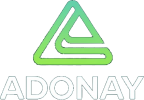Virtual Data Rooms: A Secure and Efficient Solution for Data Sharing and Collaboration
In today’s digital age, businesses face the challenge of securely storing and sharing sensitive data while maintaining efficiency and compliance. Virtual data rooms (VDRs) have emerged as a valuable solution for organizations seeking a secure and streamlined approach to data management and collaboration. This article delves into the numerous advantages of utilizing VDRs for various business scenarios, including mergers and acquisitions (M&As), fundraising, and initial public offerings (IPOs).
Enhanced Security
VDRs prioritize the security of sensitive data by incorporating robust security features. These features include two-factor authentication, granular access controls, and 256-bit encryption, ensuring that documents are protected both in transit and at rest. VDRs provide a secure environment for data sharing, minimizing the risk of unauthorized access and data breaches.
Real-time Collaboration
VDRs facilitate real-time collaboration among multiple parties involved in complex transactions. Users can access the data room from various devices, including desktops and mobile devices, enabling seamless collaboration from anywhere. VDRs offer features such as messaging, polling, and Q&A capabilities, enhancing communication and streamlining the decision-making process.
Improved Efficiency
VDRs significantly improve the efficiency of complex processes such as due diligence and fundraising. They provide a centralized platform for sharing sensitive data with potential investors and stakeholders, eliminating the need for physical document storage and courier services. VDRs offer tools for tracking user activity and document versioning, simplifying the monitoring of changes and updates.
Cost-effectiveness
VDRs offer a cost-effective solution compared to traditional physical data rooms. They eliminate the expenses associated with physical document storage, travel, and accommodation. VDRs typically employ a pay-as-you-go pricing model, ensuring predictable monthly fees. Additionally, many VDR providers offer discounts for annual subscriptions.
Organized Document Management
VDRs provide comprehensive tools for organizing and managing documents, making it easier to locate and access critical information. Features such as bulk upload, document permissions, user activity tracking, and report generation simplify document management and usage monitoring. VDRs also enable businesses to categorize and tag documents, enhancing searchability and organization.
Compliance with Regulatory Requirements
VDRs assist organizations in meeting compliance requirements by providing a secure environment for storing and sharing sensitive information. They offer advanced encryption, access controls, user permissions, audit trails, version control, and customizable settings to adhere to specific regulations such as GDPR or HIPAA. VDRs facilitate compliance by demonstrating adherence to regulatory standards.
Data Backup and Recovery
Cloud-based VDRs ensure data protection by implementing robust backup and recovery mechanisms. Redundant data storage, automated backups, and disaster recovery plans minimize the risk of data loss due to system failures or data breaches. VDRs provide peace of mind by ensuring the availability and integrity of critical data.
Customization and Flexibility
VDRs offer customization options to cater to specific business needs. They allow for customization of user permissions, branding, and reporting, making them adaptable to various use cases. VDRs provide the flexibility to tailor the platform to an organization’s unique requirements, enhancing user experience and optimizing collaboration.
Conclusion
Virtual data rooms offer numerous advantages for businesses seeking secure and efficient data sharing and collaboration. They provide enhanced security, real-time collaboration, improved efficiency, cost-effectiveness, organized document management, compliance with regulatory requirements, data backup and recovery, and customization options. By leveraging VDRs, organizations can streamline complex processes, reduce costs, and maintain data integrity, ultimately driving business success.
FAQ
What are the primary security features of virtual data rooms?
Virtual data rooms employ robust security features such as two-factor authentication, granular access controls, and 256-bit encryption to protect sensitive data both in transit and at rest. These features minimize the risk of unauthorized access and data breaches, ensuring the confidentiality and integrity of information shared within the VDR.
How do virtual data rooms facilitate real-time collaboration?
Virtual data rooms enable real-time collaboration among multiple parties by providing remote access to a centralized platform. Users can access the VDR from various devices, including desktops and mobile devices, allowing seamless collaboration from anywhere. VDRs offer features such as messaging, polling, and Q&A capabilities, enhancing communication and streamlining the decision-making process.
In what ways do virtual data rooms improve efficiency?
Virtual data rooms significantly improve efficiency by simplifying complex processes such as due diligence and fundraising. They provide a centralized platform for sharing sensitive data with potential investors and stakeholders, eliminating the need for physical document storage and courier services. VDRs offer tools for tracking user activity and document versioning, simplifying the monitoring of changes and updates.
How are virtual data rooms cost-effective?
Virtual data rooms offer a cost-effective solution compared to traditional physical data rooms. They eliminate the expenses associated with physical document storage, travel, and accommodation. VDRs typically employ a pay-as-you-go pricing model, ensuring predictable monthly fees. Additionally, many VDR providers offer discounts for annual subscriptions.
How do virtual data rooms assist with compliance requirements?
Virtual data rooms help organizations meet compliance requirements by providing a secure environment for storing and sharing sensitive information. They offer advanced encryption, access controls, user permissions, audit trails, version control, and customizable settings to adhere to specific regulations such as GDPR or HIPA VDRs facilitate compliance by demonstrating adherence to regulatory standards.
What data backup and recovery mechanisms do virtual data rooms employ?
Cloud-based virtual data rooms ensure data protection by implementing robust backup and recovery mechanisms. Redundant data storage, automated backups, and disaster recovery plans minimize the risk of data loss due to system failures or data breaches. VDRs provide peace of mind by ensuring the availability and integrity of critical data.
